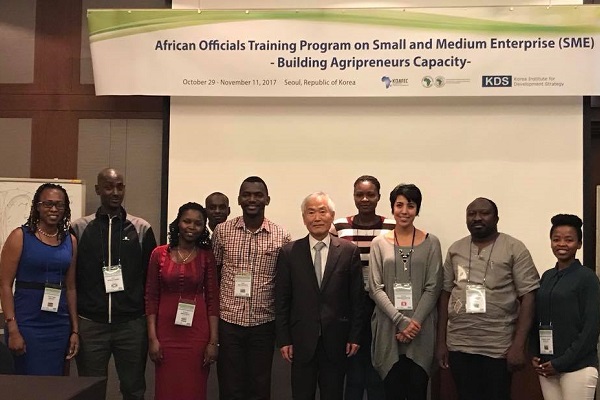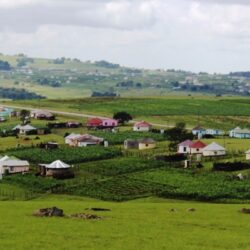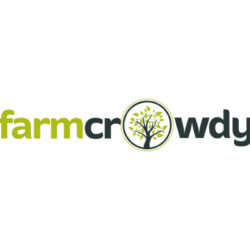A group of young African farmers were given hope for the future of their own countries after visiting South Korea on a recent trip made possible by the African Development Bank (AfDB).
The AfDB identified farmers from across Africa, and took them on an academic excursion to South Korea. The training course was organised by the Korea Institute for Development Strategy (KDS) and was aimed at teaching upcoming farmers developmental strategies that can be used to improve their own farming skills.
Farming in South Korea can be quite challenging as two thirds of the country is covered by mountains. Only 22% of the country is arable land, but it is ranked amongst the highest rice production countries in the world. Apart from rice, they produce staple food crops, soya beans, barley, corn, potatoes, sweet potatoes, cabbages, tomatoes, cucumbers, and a variety of fruits.
South Korea grew from being a mainly rural, agricultural homeland into an industrialised country. This had a huge impact on agricultural activities due to urbanisation. These developments also resulted in increased wheat and animal feed imports.
In 1970, the government initiated a program – the Saemaul Undong movement – which was used to improve conditions in rural areas. This strategy contributed to the country’s sustained economic growth.
Yunike Phiri, a farmer from Zambia participating in the tour, was impressed with how the country succeeded in attaining land reform and economic growth simultaneously despite the challenges they faced.
“The experience has left me feeling somewhat sad and happy at the same time, knowing that there is a glimpse of hope for my country and continent. It has opened up ideas and thoughts about how we need to work together to achieve development. It may not take a lot of people to start a revolution, but just a few committed people with a passion, zeal, focus, determination and ready to take up the challenge,” Phiri said.
The enforcement of policies and capacity building by the government has led to South Korea’s position as one of the fastest growing economies in the world.
“It was my first time hearing that you can rent the machinery for a period of time, considering that most of the farmers can’t afford to buy the equipment. I would really love to see that implemented in my country,” Phiri said.
South Korea focuses its attention on improving productivity by emphasising mechanisation, specialisation, and commercialisation.
“South Korea was an eye-opener and a push out of my comfort zone by the mere fact that most of our African countries are where Korea used to be 50 years ago. This means that we can do it once we have a clear vision of where we want our agriculture to be, with good leadership,” said Phidel Hazel, a farmer from Young Professionals for Agricultural Development in Kenya, who also went on the tour.
South Koreans practice small-scale and very intensive farming with minimal post-harvest losses, which is a major problem on the African continent. When the country was in ruins, the mantra that drove them was ensuring that their future generations would not inherit poverty.
“In all my 10 years of traveling and visiting other countries around the world, I have never been this inspired by a nation like I was by the South Korean people. If our people can achieve half of what they have achieved in South Korea we would make a lot of progress,’’ said Nono Sekhoto, African Farmers’ Association of South Africa Organisation Youth (AFASA) chairperson.




